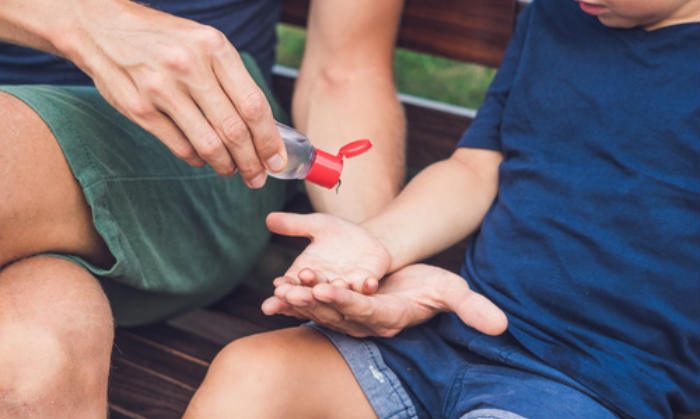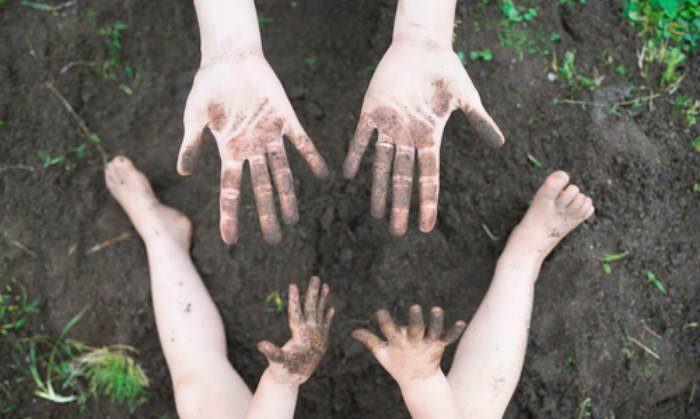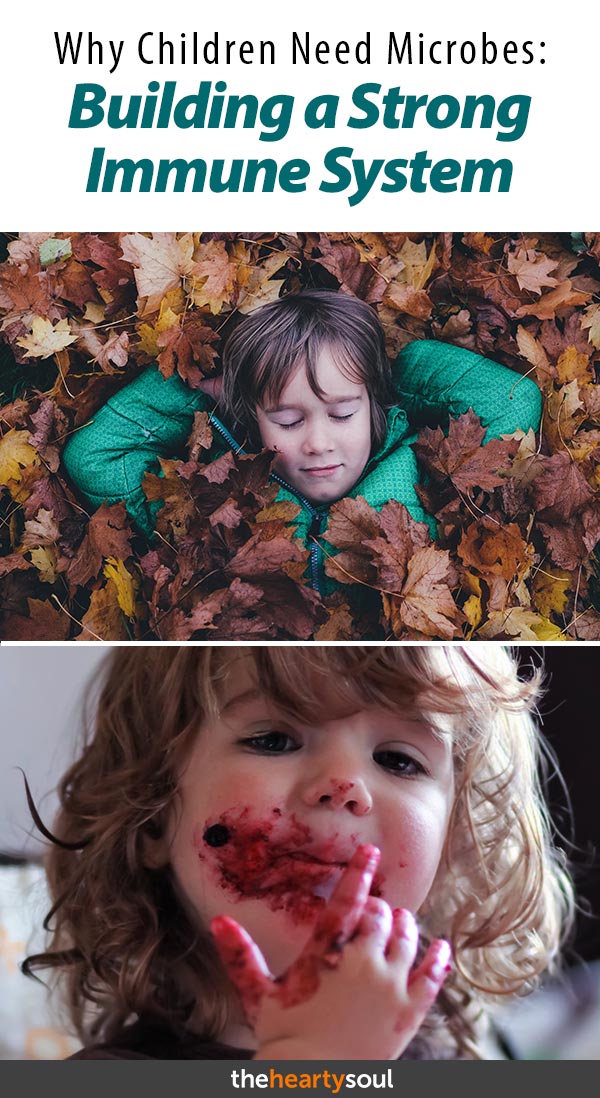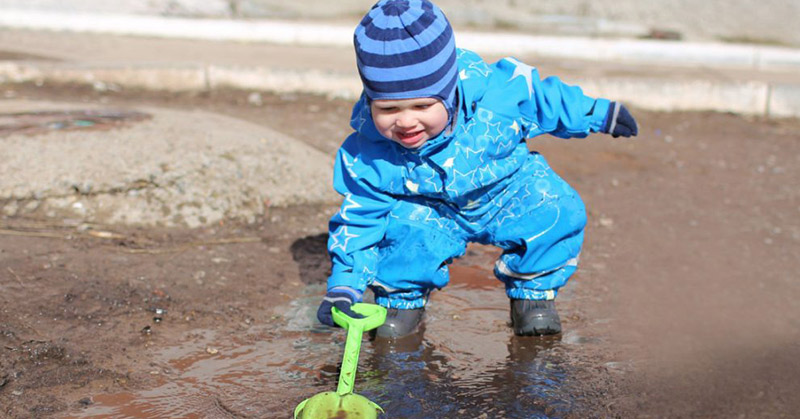This article was originally published on March 22, 2018, and has since been updated.
When you come home from work, the mall, the doctor’s office, or before you’re about to eat a meal, what do you usually do? If you said wash your hands, we’re on the same page. Don’t get us wrong – this hygienic habit many of us learned from very young is important.
However, in the Western world, many people seem to be growing scared of any and all types of bacteria. This emphasis on hyper-hygiene could actually be doing more harm than good. Especially for our children.
Why Dirt Is Good for Kids (and Adults)
We live in a world of modern hygiene and sanitation where “Kills 99.9% of All Bacteria” is the gold standard for cleanliness. No doubt, advanced hygiene technology has historically lowered rates of disease and other health problems. But, a growing body of research suggests that this unbridled obsession with killing everything dirty can damage and weaken our immune systems.
From the moment they’re born, babies constantly place things in their mouths. Whatever they can get their little hands on, they feel the need to taste or eat. It’s instinctual. In fact, it’s how they explore the world and, in the process, strengthen their immunity.
It Begs the Question: Can kids truly thrive in an over-sanitized environment?

Hand sanitizers, antibacterial soaps, disinfectant wipes… You name it, it’s probably in that parent’s purse and on their child’s skin. The problem? While those cleaning and hygiene products do effectively kill bacteria, they also eliminate good bacteria, the kind that helps foster healthy gut bacteria necessary for overall health.[1]
In studies of the “Hygiene Hypothesis,” as reported by New York Times,[2] “researchers are concluding that organisms like the millions of bacteria, viruses, and especially worms that enter the body along with ‘dirt’ spur the development of a healthy immune system.”
Microbiologist and professor at the University of Calgary Marie-Claire Arrieta explores the hygiene hypothesis in her new book “Let Them Eat Dirt: Saving Our Children from an Oversanitized World.” As reported in The Star:[3]
“The hygiene hypothesis tries to explain why allergies, as well as obesity and inflammatory bowel disease and even autism, these are all diseases on the rise. And this is not explained by genes alone. Our genes simply do not change that fast.
Research is consistently showing that it’s these changes in early life exposure to microbes that are driving the rise of these diseases. The lack of microbial exposure early in life that is necessary for our immune systems to be trained properly and to eventually be able to avoid the development of these diseases.”
Proof in the Pudding: Microbes – Not antibiotics – Develop Children’s Immunity
While Marie-Claire Arietta is a microbiologist who studies the human microbiome, she’s a mother first. That was the driving force behind her new book: to send parents and caregivers a potentially life-saving message.
There is a clear connection between children’s immune systems and the microbes to which they’re exposed. In an interview about Let Them Eat Dirt, Arietta clarifies that when babies are born, they have underdeveloped immune systems and lack microbes necessary for fighting infections. But, through a healthy exposure to microbes found in places like playgrounds and garden dirt, babies are able to develop stronger immune systems.
“It’s not just the presence of these microbes but what they produce. They produce molecules and substances that directly interact with the cells of the lining in our guts, but also with the immune cells that are on the other side of the lining in our guts. They literally train them.
It is only upon the encounter with these microbial substances that an immune cell obtains the information to do what they’re supposed to do. Then these cells in our gut have the ability to transport themselves to other parts of the body to do more training.”
Lack of “cell training” coupled with hyper-hygienic environments can lead to various chronic conditions. So, what can parents and caregivers start or stop doing to help foster strong microbiomes and prevent health problems such as asthma, obesity, more?
Marie-Claire Arietta’s 4 Tips for Developing Healthy Immune Systems in Kids

1) Live in an environment that is less clean
We’re not saying let your home turn into a pigsty, just don’t feel like you need to have every surface in your home bacteria-free. Numerous studies have proven that farm kids and growing up in rural environments actually protects kids from asthma.[4] Obviously, you can’t just uproot your life and move out of the city. However, owning pets like a dog or cat can offer the same health benefits.[5]
2) Don’t clean everything that goes in your baby’s mouth
Depending on how you clean your baby’s pacifier, you could be increasing your child’s risk of certain health conditions. One study found that when parents “cleaned” a pacifier by sucking it (as opposed to washing and disinfecting it), their children were less likely to have asthma, eczema, and sensitization.[6]
3) Keep washing your hands, but only when it matters most
This one seems self-explanatory. According to Arietta, the only times we should wash our hands to effectively prevent disease spread is “before we eat and after using the restroom. Any other time it is not necessary.”
4) If you see your kid playing in the dirt, let them be
As hard as some parents or grandparents may find it, leaving them to play in the dirt and get messy in one of the best things you could ever do. It’s not what they will get from the dirt, but what they won’t get – and that’s a healthy immune system.
Balance is key when it comes to helping raise strong, infection-fighting children. While there are things you can start doing, one thing that definitely needs to stop is the praise of hyper-hygienic environments.

Sources
- Bloomfield, S., Stanwell-Smith, R., Crevel, R., & Pickup, J. (2006, April). Too clean, or not too clean: the Hygiene Hypothesis and home hygiene. Retrieved March 20, 2018, from https://www.ncbi.nlm.nih.gov/pmc/articles/PMC1448690/
- Brody, J. E. (2009, January 27). Babies Know: A Little Dirt Is Good for You. Retrieved March 20, 2018, from https://www.nytimes.com/2009/01/27/health/27brod.html
- Weikle, B. (2016, October 20). Children need microbes – not antibiotics – to develop immunity, scientists say. Retrieved March 20, 2018, from https://www.thestar.com/life/2016/10/20/children-need-microbes-not-antibiotics-to-develop-immunity-scientists-say.html
- Naleway, A. L. (2004, February). Asthma and Atopy in Rural Children: Is Farming Protective? Retrieved March 20, 2018, from https://www.ncbi.nlm.nih.gov/pmc/articles/PMC1069066/
- Jhun, I., & Phipatanakul, W. (2016, April). Early exposure to dogs and farm animals reduces risk of childhood asthma. Retrieved March 20, 2018, from https://www.ncbi.nlm.nih.gov/pmc/articles/PMC4805472/
- Hesselmar, B., Sjöberg, F., Saalman, R., Aberg, N., Adlerberth, I., & Wold, A. E. (2013, June). Pacifier cleaning practices and risk of allergy development. Retrieved March 20, 2018, from https://www.ncbi.nlm.nih.gov/pubmed/23650304

